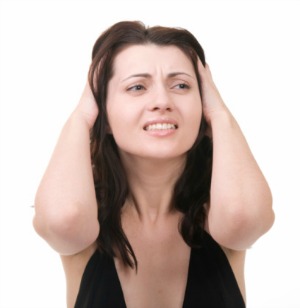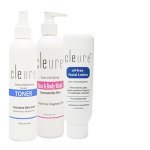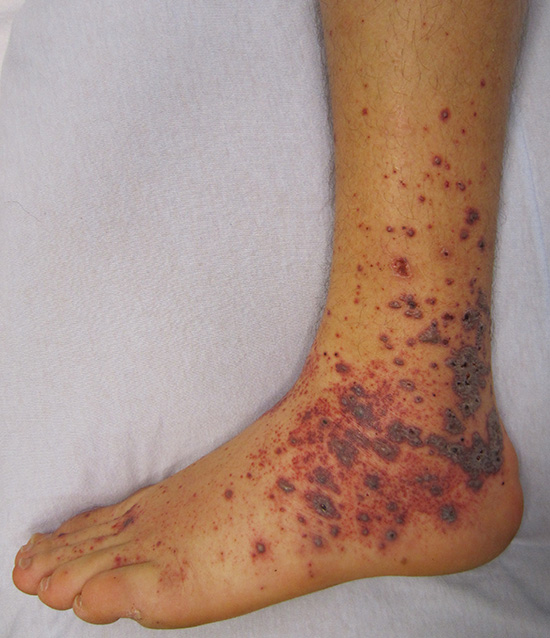How Long do Hair Dye Allergies Last?
I just got my hair dyed and developed allergy, have been researching and found you. I was just curious about how long it takes for hair dye allergy to end. And any advice you might have to take away/minimize symptoms.
Update for 2015Since I wrote my original reply to this reader's question, I've learned that sometimes one chemical exposure, even to something you've used before, can create an ongoing health problem, if this is added to an already stressful situation. Some of you who have written in about your hair dye allergies have had this experience. There is hope, but if you cannot recover from your hair dye allergies, even with medical help, it may be that your body has begun to get overly sensitized.
Something similar happened to me, but not from a hair dye allergy. It was pretty scary, but I recovered through using a limbic system retraining program to calm down the over-inflammation that happened from my chemical exposures. You can read my story at
When Hypersensitivity Goes Too FarMy original replyHi, and thank you for writing. I am so sorry to hear of the
hair dye allergies you experienced. Yes, sadly this is a problem that many people who use hair dyes with PPD (p-Phenylenediamine ), a controversial ingredient that in my opinion should not be allowed in hair products because so many people have allergic reactions to it.
PPD goes by many names and so you may think that your hair coloring product does not contain it, however if it contains phenylinediamine, benzenediamine, aminoaniline dihydrochloride, these also are PPD.
PPD can also be known as PPDA, 4-Phenylenediamine, para-Diaminobenzene (p-Diaminobenzene), 4-Benzenediamine, 1,4-Phenylenediamine, para-Aminoaniline (p-Aminoaniline), and also is called by several trademarked brand names such as Rodol, Ursol and Orsin.
You would be wise to avoid all hair dyes that are considered oxidation hair dyes, which come in two separate bottles.
There are also some related ingredients that can cause allergic reactions such as Para-aminosalicylic acid, or Benzocaine and procaine which are local anasthetics used by dentists and doctors.
It is always a good idea to do a skin test before using any kind of product on your body or hair. Apply a small amount of the hair dye product to the inside of your elbow or behind the
ear and wait three days or more. If no allergy develops, you likely will not have a reaction.
You may be able to ask your hair stylist to remove the hair coloring, which may reduce your symptoms, however I don't know what chemicals are used to remove the dye, so I recommend you consult your doctor to be sure.
Hair dye allergies can appear from a few minutes, to up to ten days after being exposed to the PPD. Some people get better in a few days or weeks. Others have symptoms for longer.
Sometimes the symptoms will go away on their own, as soon as you stop using the hair dye. It can be helpful to shampoo your hair with a gentle
hypoallergenic shampoo and then rinse your hair with a 2% hydrogen peroxide solution to neutralize the PPD.
If you have a bad reaction, you will need medical help. I recommend you first see your doctor or health practitioner, although you want to be sure that they are familiar with hair dye allergy. Many people with hair dye allergies say that older, female dermatologists are some of the best educated doctors on this subject, because they too are dealing with gray hair!
One of the things that happens when we have an allergic reaction is that our immune systems go into overdrive to fight off the offending chemical or substance.
One of the challenges that some people with PPD allergy have encountered is that their doctors or dermatologists will prescribe cortisone drugs or other anti-inflammatory medications to help calm down the reaction, however some people also have a reaction to these drugs. According to some people with PPD allergy, some over the counter cortisone drugs like Neosporin can aggravate their allergy.
For this reason I recommend that you do some research and connect with other people who have a PPD allergy. I am not a doctor, but it has been my experience that we each have unique bodies, which may react to foods or medications in individual ways, so the more we can educate ourselves about what our bodies need, the easier it will be to remain healthy.
There is more information there at our
hair dye allergies page, I hope that this can be helpful to you and that you feel better soon!










